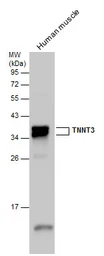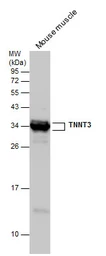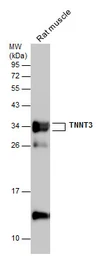Troponin T fast skeletal antibody
Cat. No. GTX130922
Cat. No. GTX130922
-
HostRabbit
-
ClonalityPolyclonal
-
IsotypeIgG
-
ApplicationsWB
-
ReactivityHuman, Mouse, Rat


